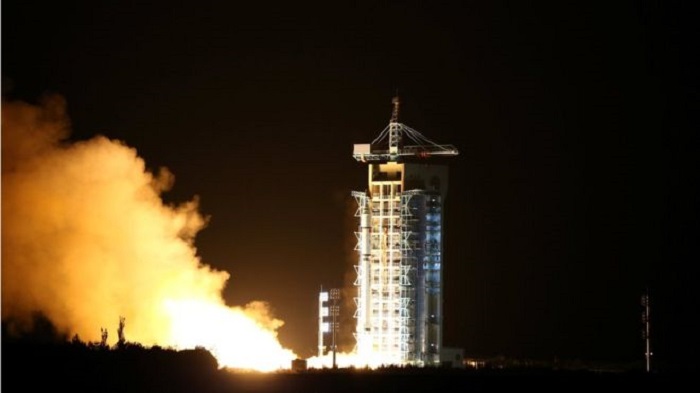The satellite is named after the ancient Chinese scientist and philosopher Micius.
The project tests a technology that could one day offer digital communication that is "hack-proof".
But even if it succeeds, it is a long way off that goal, and there is some mind-bending physics to get past first.
How does it work?
The satellite will create pairs of so-called entangled photons - tiny sub-atomic particles of light whose properties are dependent on each other - beaming one half of each pair down to base stations in China and Austria.
This special kind of laser has several curious properties, one of which is known as "the observer effect" - its quantum state cannot be observed without changing it.
So, if the satellite were to encode an encryption key in that quantum state, any interception would be obvious. It would also change the key, making it useless.
If it works, it will solve the central problem of encrypted communications - how to distribute keys without interception - promising hack-proof communications. The encrypted message itself can be transmitted normally after the key exchange.
Has it been done before?
Not from space, making this launch experimental. But fibre-optic quantum key distribution networks already exist in Europe, the US and China.
The signals weaken over distance though, which this project is hoping to minimise by sending the signals mostly through space, keeping attenuation to a minimum despite the distances involved.
But aside from the tricky physics, there is also the difficult matter of firing tiny sub-atomic particles at precise targets on the ground, across vast distances, while travelling incredibly fast through space. There are good reasons this is the first attempt.
More about:


























-1745485667.jpg&h=190&w=280&zc=1&q=100)





















